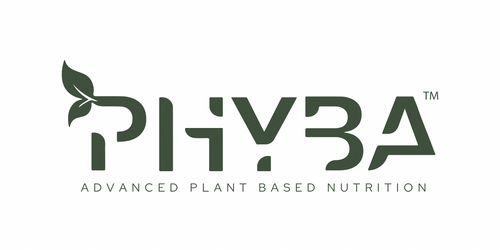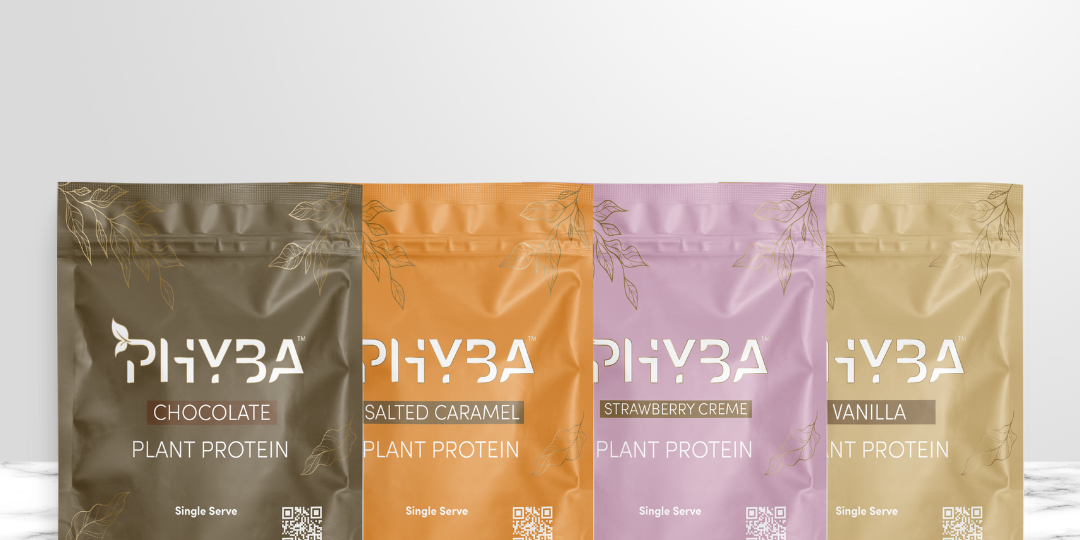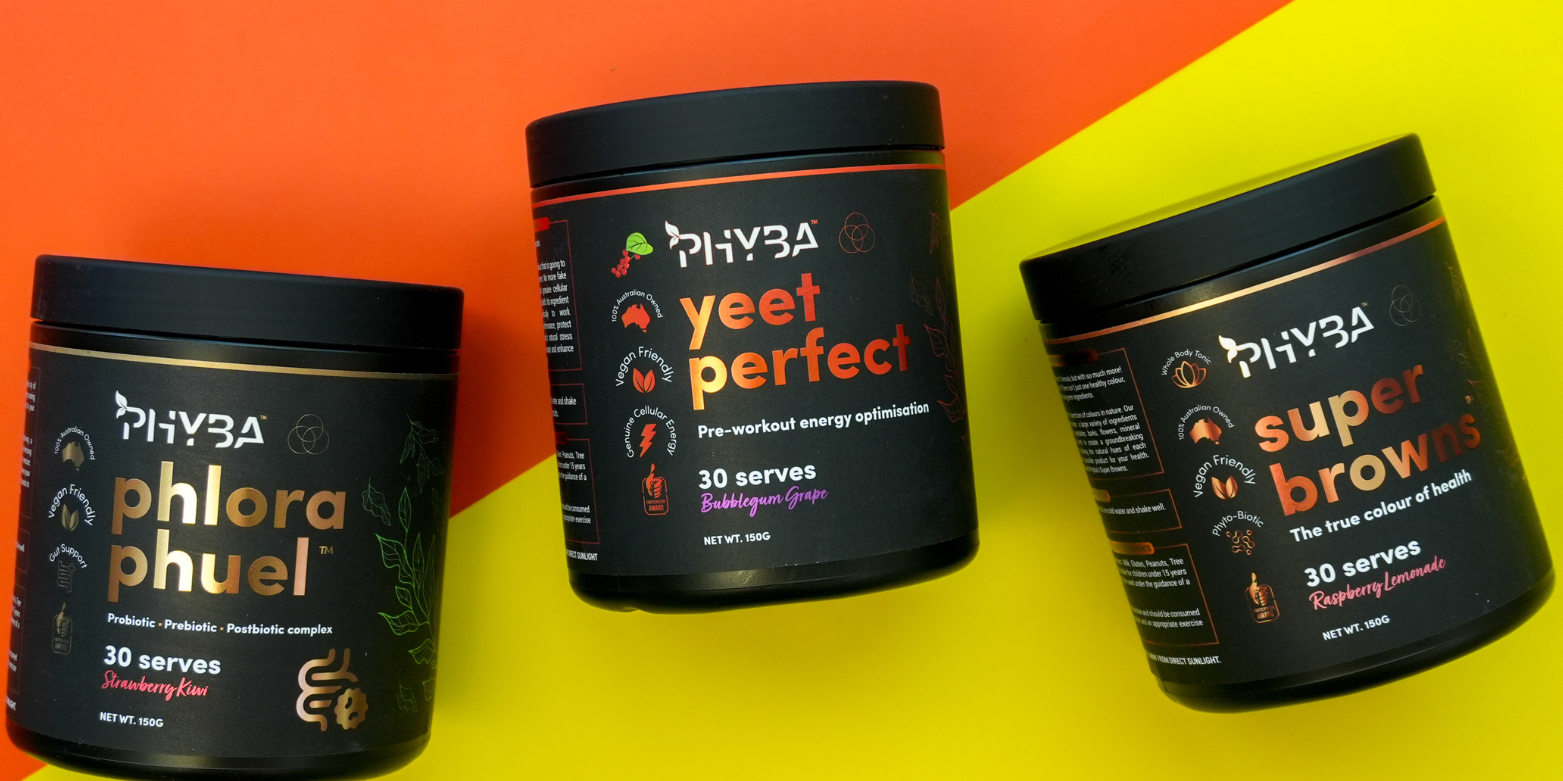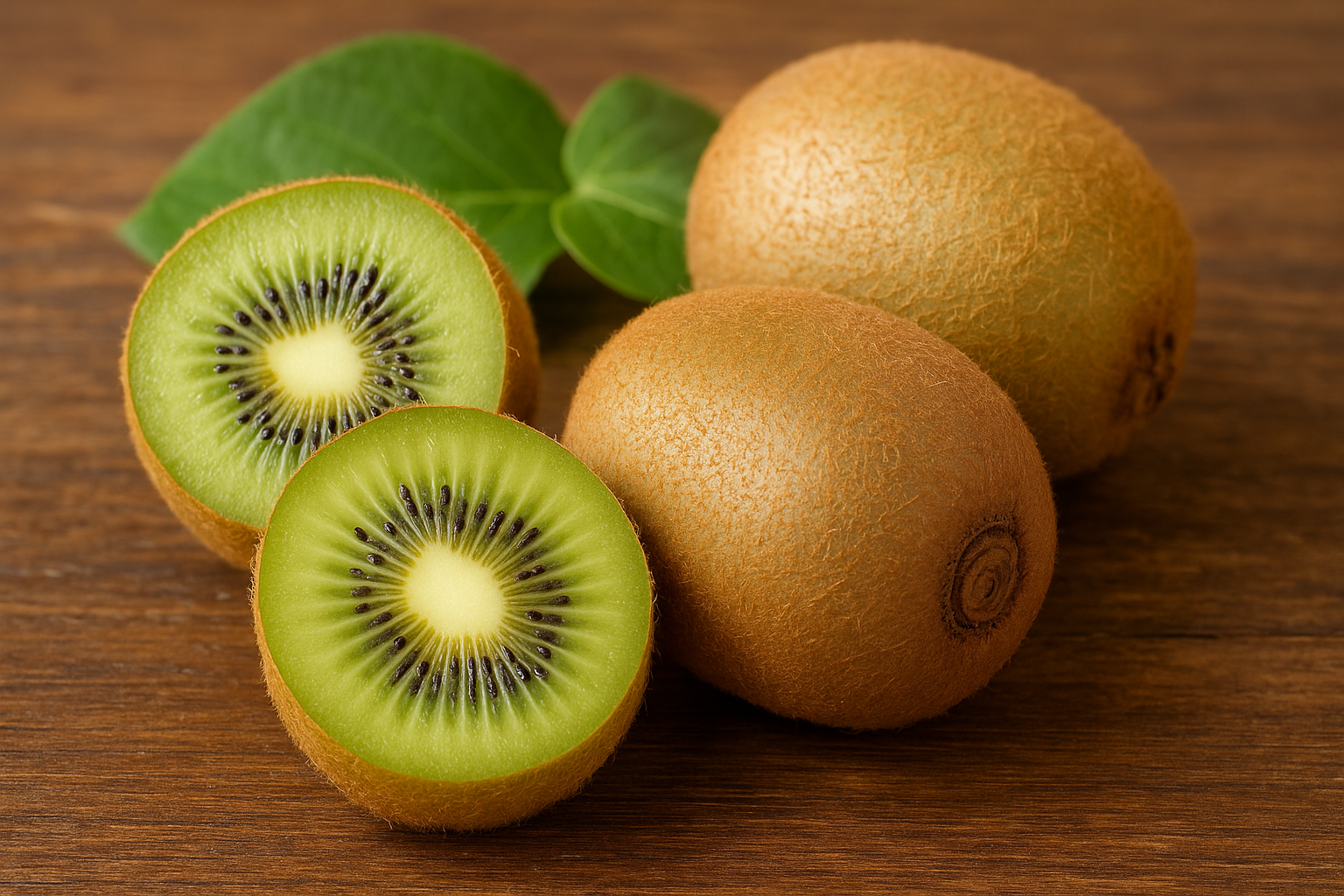With its vibrant green flesh, tart-sweet flavor, and fuzzy exterior, the kiwifruit is more than a tropical treat—it’s a functional food that fuels gut health, supports immunity, and even boosts beneficial microbes like Akkermansia, Acidophilus, and Rhamnosus. What gives kiwi this potent power? A unique mix of polyphenols, prebiotic fibers, and natural enzymes. Found with in SOLARBEAM, Phyba's brand new daily pick me up!
Let’s unpack the science behind the kiwi.
🌱 What Are Polyphenols?
Polyphenols are natural compounds found in plant foods that act as antioxidants, anti-inflammatories, and prebiotics. They aren’t fully absorbed in the upper gut, which means they reach the colon where they:
-
Interact with gut microbes
-
Are metabolized into bioactive compounds
-
Help beneficial bacteria thrive
In this way, polyphenols act as “fertilizer” for good bacteria and help suppress harmful ones.
🥝 Polyphenol Profile of Kiwifruit
Kiwifruit is surprisingly rich in polyphenols, especially:
-
Catechins (similar to those in green tea)
-
Quercetin
-
Rutin
-
Caffeic and chlorogenic acids
A single medium kiwifruit (~100g) contains approximately 60–100 mg of total polyphenols, varying by cultivar (green Hayward vs. golden).
These compounds:
✅ Act as antioxidants
✅ Modulate immune function
✅ Promote the growth of beneficial gut flora
🧫 Kiwifruit & Beneficial Gut Bacteria
✅ 1. Akkermansia muciniphila
Kiwifruit’s polyphenols stimulate mucin production, especially in the gut lining. Since Akkermansia feeds on mucin (in a symbiotic way), kiwi naturally promotes its growth. Increased Akkermansia abundance has been linked to:
-
Better gut barrier integrity
-
Reduced inflammation
-
Improved metabolic health
Study Insight: Research shows polyphenols from fruits like kiwi increase Akkermansia levels while lowering endotoxemia (leaky gut-induced toxicity).
✅ 2. Lactobacillus acidophilus
Kiwifruit contains actinidin, a natural enzyme that helps break down proteins and enhances digestion. This creates an environment in the gut where Acidophilus can colonize more easily.
Plus, kiwi’s prebiotic fibers (like pectin) are fermented by Acidophilus, supporting:
-
pH regulation
-
Lactic acid production
-
Enhanced nutrient absorption
✅ 3. Lactobacillus rhamnosus
Rhamnosus thrives on low-sugar, fiber-rich diets. Kiwifruit offers low glycemic sugars, fibers, and polyphenols that:
-
Suppress gut pathogens
-
Boost lactic acid levels
-
Stabilize Rhamnosus growth
Rhamnosus is essential for:
-
Gut-brain axis support
-
Allergy modulation
-
Defense against infections
🌟 Other Health Benefits of Kiwifruit
🛡️ 1. Immunity Booster
-
High vitamin C (1 kiwi = 100% RDI)
-
Supports white blood cell production
-
Natural anti-viral and anti-bacterial polyphenols
💩 2. Natural Digestive Aid
-
Contains actinidin, which breaks down protein more effectively than papain or bromelain
-
Helps relieve bloating, gas, and constipation
❤️ 3. Cardiovascular Support
-
Rich in potassium for blood pressure regulation
-
Polyphenols reduce LDL oxidation and promote vascular health
🧠 4. Neuroprotective Effects
-
Antioxidants + gut–brain axis modulation from Lactobacilli support mood and cognitive resilience
🍽️ How to Maximize Kiwifruit’s Gut Benefits
✅ Eat it with the skin (well-washed!) – doubles fiber and polyphenol intake
✅ Combine with yogurt or kefir – synergistically enhances Acidophilus and Rhamnosus
✅ Go for green kiwis (Hayward) for higher fiber and enzyme content
✅ Choose organic to avoid pesticide residues that harm microbes
📊 Recap Table
| Microbe | Kiwi’s Benefit Mechanism |
|---|---|
| Akkermansia | Mucin-stimulating polyphenols; gut barrier protection |
| Lactobacillus acidophilus | Prebiotic pectin + actinidin enzyme enhance colonization |
| Lactobacillus rhamnosus | Fiber + antioxidant synergy lowers gut inflammation |
📚 References
-
Parkar, S. G., et al. (2008). Kiwifruit modulates the colonic microbiota in vitro: A fermentation study. Journal of Functional Foods, 1(2), 224–232. https://doi.org/10.1016/j.jff.2009.01.005
-
Sun-Waterhouse, D., et al. (2010). Health-promoting properties of kiwifruit polyphenols. Critical Reviews in Food Science and Nutrition, 50(3), 220–245. https://doi.org/10.1080/10408390902773013
-
Henare, S. J., et al. (2020). A pilot study to evaluate the effect of kiwifruit on stool consistency and bowel movement frequency in elderly adults. Nutrition Research, 74, 45–52. https://doi.org/10.1016/j.nutres.2019.12.003
-
Bermudez-Brito, M., et al. (2012). Probiotic mechanisms of action. Annals of Nutrition and Metabolism, 61(2), 160–174. https://doi.org/10.1159/000342079
-
Cani, P. D., et al. (2017). Akkermansia muciniphila: A promising next-generation probiotic. Gut, 66(5), 830–839. https://doi.org/10.1136/gutjnl-2016-313112
🧠 Final Thoughts
Kiwifruit isn’t just a nutritious snack—it’s a microbiome-enhancing, digestion-optimizing, immunity-boosting superfruit. With its rich polyphenol and fiber profile, it creates the perfect ecosystem for beneficial gut microbes like Akkermansia, Acidophilus, and Rhamnosus to thrive.
It’s time to rethink kiwi as more than just a fruit—think of it as your daily gut symbiote.












